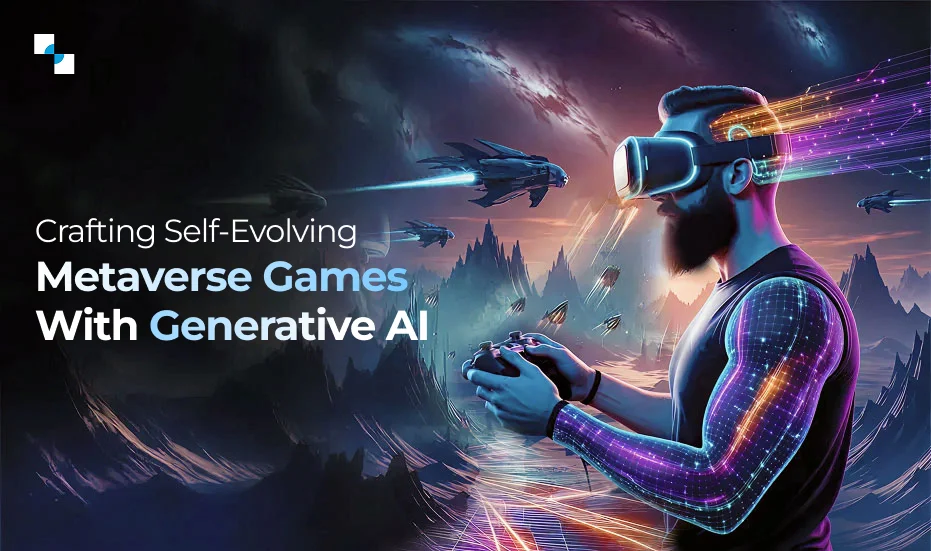The concept of a metaverse, a virtual world where people can interact, learn, and create, has gained significant attention in recent years. With advancements in technology and the rise of virtual and augmented reality, the potential of a metaverse platform for education has become increasingly evident. This platform has the potential to revolutionize the way education is delivered, especially for specially-abled students.

Specially-abled students, such as those with physical disabilities, learning disabilities, or developmental disorders, often face significant challenges in the traditional education system. These students require specialized support and accommodations to help them succeed academically and reach their full potential. Metaverse education platform development helps to overcome some of the unique challenges that specially-abled students encounter in the traditional education system.
What are the main challenges and solutions faced by specially-abled students in the traditional education system?
Specially-abled students face a variety of challenges in the traditional education system, including:
1. Lack of Access to Appropriate Accommodations and Support Services
One of the primary challenges faced by specially-abled students is the lack of access to appropriate accommodations and support services. Many schools do not have the resources or expertise to provide the specialized support that these students need to succeed. As a result, specially-abled students may struggle to keep up with their peers academically and may not receive the individualized attention they require.
2. Limited Opportunities for Personalized Learning
Another challenge for specially-abled students in the traditional education system is the limited opportunities for personalized learning. Many schools follow a one-size-fits-all approach to education, which may not be conducive to the diverse learning needs of specially-abled students. These students often require customized learning plans and teaching strategies to help them thrive academically.
3. Social Isolation and Stigma
Specially-abled students may also face social isolation and stigma in the traditional education system. Due to their differences, these students may be excluded or marginalized by their peers, which leads to feelings of loneliness and low self-esteem. It is essential for educators and schools to promote inclusivity and acceptance to create a more supportive and welcoming environment for specially-abled students.
4. Inadequate Teacher Training and Awareness
Lastly, specially-abled students often face challenges due to inadequate teacher training and awareness. Many educators may not have the knowledge or skills to effectively support these students in the classroom. Providing professional development opportunities and resources for teachers can help improve their understanding of the unique needs of specially-abled students and enhance their ability to provide appropriate support.
Here are the solutions:
Educators and schools can better support specially-abled students by:
- Providing access to appropriate accommodations and support services
- Implementing personalized learning plans for each student
- Promoting inclusivity and acceptance among students
- Offering ongoing teacher training and professional development opportunities
Benefits of Metaverse education platform development
There are numerous benefits of Metaverse education platform development which attracts more educational institutions and organizations to join the revolution of virtual teaching-learning practices. Here are some of the astounding benefits you can’t ignore:
1. Accessible Learning Environment
Metaverse platform for education provides a completely virtual learning environment, which eliminates the barriers that may exist in physical classrooms. Individuals with mobility issues, hearing or visual impairments, or other physical disabilities can access the platform from the comfort of their homes, making learning more convenient and accessible.
2. Personalized Learning
Metaverse platforms use advanced technologies like artificial intelligence to personalize the learning experience for each student. This is especially beneficial for students with learning disabilities, as the platform can adapt to their specific needs and pace of learning.
3. Inclusive Learning Experience
Metaverse platforms promote inclusivity by creating a level playing field for all students. The virtual environment eliminates any visible differences, creating a sense of equality among students. This can boost the confidence of specially-abled students and encourage them to actively participate in the learning process.
4. Flexibility and Independence
It can be a daunting task for students with disabilities, to attend traditional classrooms. Metaverse education platform development helps educators to provide the necessary flexibility to their students by allowing them to attend classes at their convenience. It gives them a sense of independence and control over their learning. It can be particularly beneficial for students with chronic illnesses or those who require frequent medical appointments.
5. Multi-sensory Learning
Metaverse platforms utilize a combination of visual, auditory, and interactive elements to deliver lessons. This multi-sensory approach can be highly beneficial for students with learning disabilities, as it caters to different learning styles and makes learning more engaging and effective.
6. Collaborative Learning
Metaverse platform for education allows students to collaborate and interact with their peers from different parts of the world. This can be a great opportunity for specially-abled individuals to connect with others and build meaningful relationships, something that may not be possible in traditional educational settings.
7. Real-World Simulations
Metaverse platforms use cutting-edge technologies like virtual and augmented reality to create realistic simulations of real-world scenarios. This can be highly beneficial for students with disabilities, as they can experience and learn about different environments without any physical limitations.
8. Career Opportunities
The skills and knowledge gained through metaverse education can open up various career opportunities for specially-abled individuals. With the rise of remote work and virtual job opportunities, these individuals can now pursue their career goals without any physical barriers.

Key considerations for building a metaverse platform for education for specially abled students
Are you looking to create a Metaverse platform for education that caters specifically to specially-abled students? You must focus on these key considerations to make your platform easily accessible, user-friendly, and effective for this unique group of learners.
1. Understanding the Needs of Specially Abled Students
Before diving into the technical aspects of metaverse education platform development, it is crucial to have a deep understanding of the needs and challenges faced by specially-abled students. Different disabilities require different accommodations, so it is essential to consider a wide range of factors such as visual impairments, hearing impairments, mobility issues, and cognitive disabilities. You can ensure that your platform is inclusive and accessible to all students by understanding the specific needs of your target audience.
2. Accessibility Features and Design Considerations
When designing a metaverse platform for specially-abled students, accessibility should be at the forefront of your design priorities. Consider incorporating features such as screen reader compatibility, keyboard navigation, alternative text for images, and color contrast adjustments. These features can make a significant difference in the usability of your platform for students with disabilities. Additionally, ensure that your platform is designed in a way that is easy to navigate and understand, with clear and concise instructions and feedback.
3. Collaborating with Special Education Experts
Building a metaverse platform for education for specially-abled students requires expertise in both technology and special education. Consider collaborating with special education experts and professionals to ensure that your platform meets the unique needs of this student population. They can provide valuable insights and guidance on how to make your platform more inclusive and effective for students with disabilities. By working together, you can create a platform that truly meets the needs of specially abled students.
4. Engaging and Interactive Learning Experiences
Incorporating engaging and interactive learning experiences is an essential part of metaverse education platform development. Specially abled students may have different learning styles and preferences, so it is crucial to offer a variety of activities and instructional methods. Consider incorporating gamification, simulations, virtual reality experiences, and other interactive elements to keep students engaged and motivated. You can cater to the individual needs and preferences of all students by providing diverse learning opportunities.
5. Providing Support and Accessibility Resources
Even with a well-designed metaverse platform, some specially abled students may require additional support and resources to fully participate in educational activities. Consider providing access to support services such as sign language interpreters, captioning services, assistive technology tools, and accessibility resources. It also offers multiple modes of communication and interaction to accommodate different communication preferences. You can ensure that all students have equal opportunities to succeed on your platform by providing comprehensive support and resources.
6. Gamification
Gamification can be a useful tool in engaging specially abled students in the learning process. The metaverse platform can incorporate game elements such as points, levels, and rewards to motivate students and make learning more enjoyable. However, it is essential to ensure that these elements are accessible to students with different disabilities and do not create barriers to their learning.
7. Assistive Technologies
Many specially abled students use assistive technologies to access information and communicate. Therefore, it is crucial to ensure compatibility with these technologies in the metaverse platform. This includes screen readers, speech recognition software, and alternative input devices. The platform should also provide options for adjusting the font size, color contrast, and other visual elements to accommodate students with different needs.
Wrap Up
Creating a metaverse platform for education for specially-abled students can be a remarkable initiative that can truly make a positive impact. You can offer an inclusive digital environment to students with varying abilities. It will allow them to access educational resources, and participate in interactive activities like never before.
Antier, a leading metaverse education platform development solutions provider, specializes in building innovative platforms tailored to cater to the unique needs of differently-abled learners. You can collaborate with educators, therapists, and experts in special education, and let us craft a dynamic educational ecosystem that fosters inclusivity, accessibility, and engagement. Get started today!







